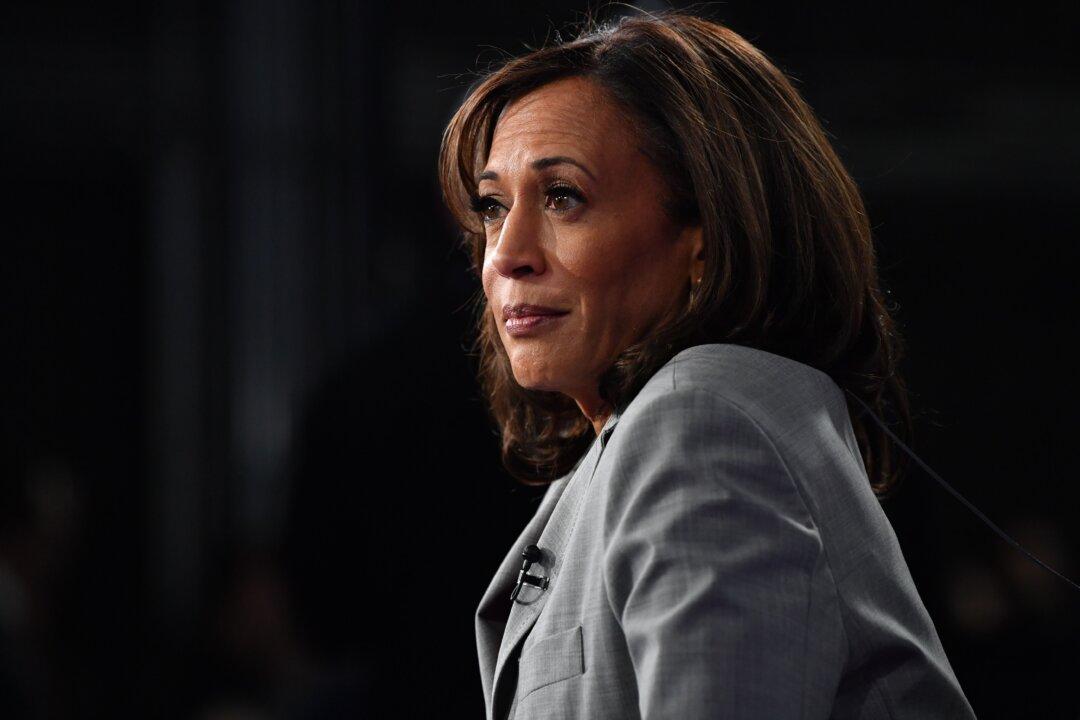Sen. Kamala Harris (D-Calif.) was the latest Democratic presidential candidate to advocate seizing patents from drug companies that refuse to comply with drug pricing proposals candidates hope to pass if they get elected.
Harris, 55, told an audience in Muscatine, Iowa on Nov. 22, that she'd use her powers if elected president to make drugs cheaper.





